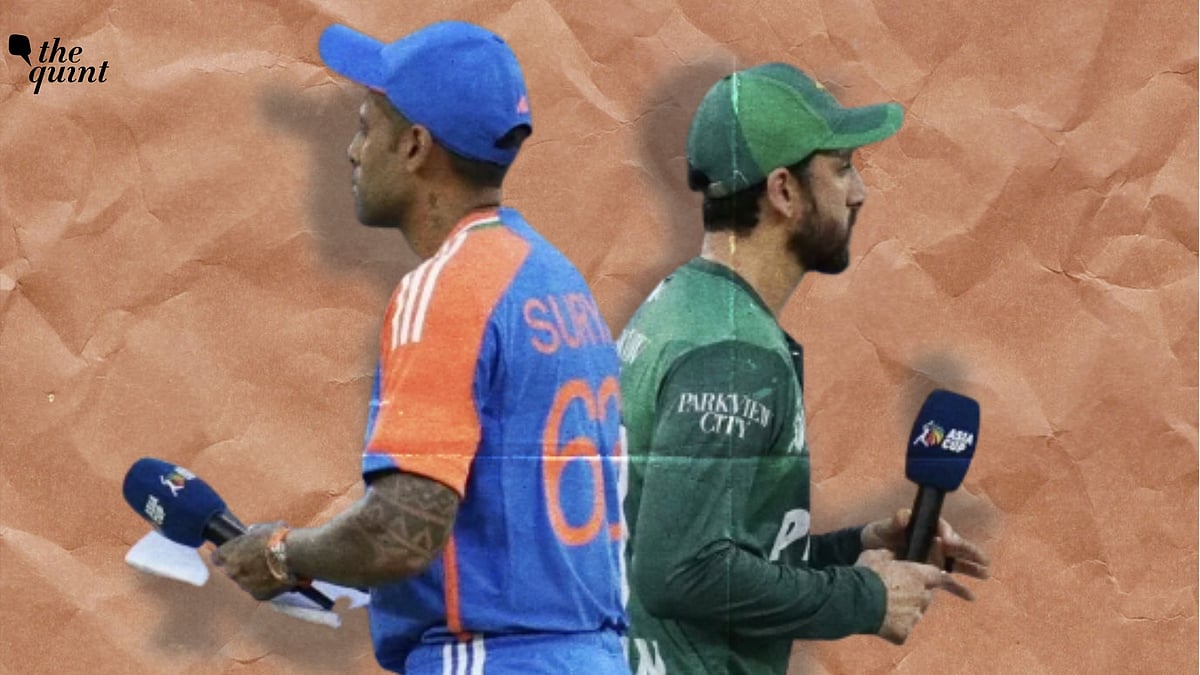2025 Asia Cup: The Day India Served It Hot. Neither Shaken, Nor Stirred.
2025 Asia Cup: Indian cricketers saw their silence being weaponised, until their silence spoke louder than words.

advertisement
Three centuries ago, the British introduced India to two seemingly unrelated legacies — cricket, and the handshake. And over the past three months, the Indian cricket team has intertwined them in ways never seen before.
For all the moralising around sportsmanship, India was right to choose restraint on both occasions.
More About The Statement Than The Win
It is a cliché to claim that every match holds equal weight. It is also a lie. While all matches are equal, some are more equal than others, especially if it is laced with geopolitics that run on nationalistic fervour. Think of Cuba-USA in baseball, England-Germany in football, and in cricket, of course, India-Pakistan.
There were no such headlines today. For, there was nothing grandiloquent about yesterday.
There will be celebrations, indeed, but restrained. There will be confabs at every corner of every road, but not specifically centered around how Suryakumar Yadav batted in the game. Instead, on what he had to say after it.
The Events Of 14 September
A week ago, Yadav found himself as — be it for a fleeting moment — the singular target of an orchestrated attack. At the captains’ press conference, he was seen shaking hands with Pakistan’s skipper Salman Ali Agha, and the Asian Cricket Council (ACC) president Mohsin Naqvi, who doubles up as a Pakistani politician. At the time, it was a matter of circumstance rather than a conscious decision.
And hence, match referee Andy Pycroft, who was made privy to India’s decision, requested the Pakistan captain not to shake hands at the toss. During the game, Indian batters Yadav and Shivam Dube were seen making a swift exit the moment they had chased down a target of 128 runs. That was not all, however, as once done with the muted celebrations, India’s dressing room was locked as well, preventing any intrusion.
Did India let the crusaders of ‘sportsman spirit’ down? Perhaps. But was that even on the agenda in a match like yesterday’s?
Captain Yadav stated:
Sure, the Pakistani camp was left infuriated, so much so that Salman Ali Agha did not even turn up for the post-match press conference. Coach Mike Hesson lamented:
The Pakistan Cricket Board even launched a formal protest against Pycroft.
What Other Option Did The Indian Cricketers Have?
Could the Indian camp have carried themselves in a more dignified manner?
Even if they wanted to, their avenues were limited. The players were aware of the boycott calls. They were aware of the Pahalgam victims’ families pleading not to play against Pakistan, the politicians using a sporting event to promulgate their agenda, and the primetime news anchors inciting animosity against India’s legends — from Sachin Tendulkar to Sourav Ganguly — for not making a statement. The cricketers’ silence was weaponised.
Whether the public exasperation was justified leads to another debate. What cannot be debated is the unjust indignation against the players before the match, who were reduced to mere pawns and were left hung out to dry.
The Captain's Clarification
It would not have been out of the ordinary to not hear anything about Pahalgam. Rather, it would have been par for the course if political discourse was entirely avoided during the game.
But India, led by Suryakumar Yadav, took a stand and made a statement.
Pakistan Might've Forgotten
The lack of handshakes has triggered pandemonium in Pakistan. Shoaib Akhtar called it heartbreaking, while Kamran Akmal claimed the Indian players were pressurised into not shaking hands.
The embarrassment was palpable. India’s stance, though, was aimed not at their counterparts, but to establish that they are treating the game only as a professional commitment, with no room for amity or cordiality.
Perhaps, the Pakistani cricketers cannot be faulted for their anger over India’s antics. Perhaps, the game should not have been organised in the first place. Among the many could have beens, however, don’t disparage what was — a bunch of individuals, rendered resistless and helpless, taking a stand when the powers that be did not.